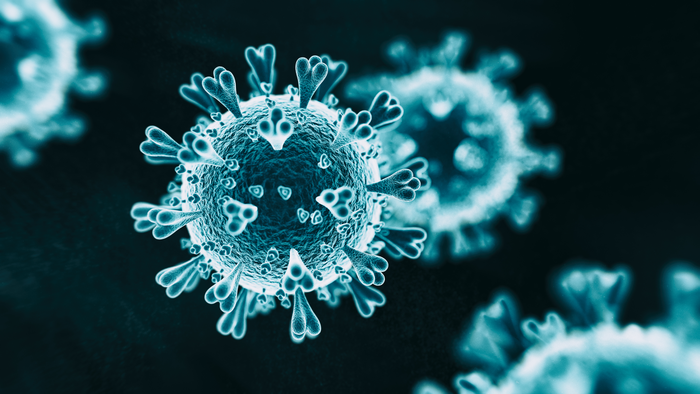PHILADELPHIA — (July 7, 2022) — Under a Defense Advanced Research Projects Agency (DARPA) and Joint Program Executive Office for Chemical, Biological, Radiological and Nuclear Defense (JPEO-CBRND) funded program, a novel COVID-19 antibody delivery approach has advanced to clinical trials. The collaborative team was led by David Weiner, Ph.D., The Wistar Institute executive vice president, director of the Vaccine & Immunotherapy Center, and W.W. Smith Charitable Trust Professor in Cancer Research, and included colleagues at The University of Pennsylvania, AstraZeneca, INOVIO Pharmaceuticals, and Indiana University.

Credit: The Wistar Institute
PHILADELPHIA — (July 7, 2022) — Under a Defense Advanced Research Projects Agency (DARPA) and Joint Program Executive Office for Chemical, Biological, Radiological and Nuclear Defense (JPEO-CBRND) funded program, a novel COVID-19 antibody delivery approach has advanced to clinical trials. The collaborative team was led by David Weiner, Ph.D., The Wistar Institute executive vice president, director of the Vaccine & Immunotherapy Center, and W.W. Smith Charitable Trust Professor in Cancer Research, and included colleagues at The University of Pennsylvania, AstraZeneca, INOVIO Pharmaceuticals, and Indiana University.
This team was awarded $37.6 million to fund the rapid pre-clinical development of DNA-encoded SARs-CoV-2 monoclonal antibodies (DMAbs) to prevent COVID-19. DMAbs use a person’s own cells as a factory for making the protective antibodies, simplifying the development and the production process for biologics—which could broaden the use of such novel medicines to the global community.
The first dosing with this new investigational agent occurred in a first-in-human clinical trial being led by Pablo Tebas, M.D., professor of Infectious Diseases at the Perelman School of Medicine at the University of Pennsylvania, and his team. The clinical trial will assess the overall safety and tolerability of this novel approach to enable the body to produce multiple full-length monoclonal antibodies through advanced DNA technology in people.
“This development is the culmination of the many steps taken working together with our DARPA/JPEO leadership team and members of the consortium advancing this product at this important time. We look forward to seeing the initial outcome from this first-in-human clinical trial studying this novel concept,” Weiner shares. He elaborates on the goals of the trials, explaining “In addition to assessing safety and tolerability, we will also look for important insights into biological expression and activity in our trial subjects and if these can be shown to impact viral infection.”
“Despite all of the progress made on COVID-19 treatments and management, this disease continues to kill three times more Americans than the flu,” says Tebas. “We need better methods to prevent complications of this disease particularly in immunocompromised patients. Our study will test a new way to deliver antibodies against COVID-19 that have been proven to decrease hospitalizations and deaths from this terrible disease.”
This work is enabled through a unique public-private collaboration. The team brings together important and diverse scientific and technical strengths to create this new tool to address vulnerable patient needs. Over the past several years, Weiner and collaborators’ advances in the nucleic acid delivery space led to the developments that underpin this program. The study takes advantage of pioneering nucleic acid approaches advanced by longtime collaborator Tebas, important new tools for nucleic acid delivery developed in concert with INOVIO and is built on the collaboration with AstraZeneca to recreate protein biologics into this innovative DNA medicine approach.
Mark Esser, vice president, Early Vaccines and Immune Therapies, AstraZeneca, said, “Dosing the first patient with a COVID-19 DMAb candidate is the culmination of hard work from a collaborative public-private partnership. This trial provides an important opportunity to evaluate an innovative technology that could potentially transform how we deliver antibodies and protect against severe infections.”
The novel approach utilizes the genetic blueprints for antibodies encoded into DNA plasmids. After delivery into the arm, DMAbs instruct the body to assemble functional antibodies and secrete these into the blood as fully formed specific monoclonal antibodies against pathogens such as the SARS-CoV-2 virus. This approach bypasses the need for immunization to generate protective immunity.
Weiner says, “This project is an important example of team science and the value of working together to tackle difficult problems. The team’s mission was to advance and study a new way to deliver lifesaving therapies in a short time frame. We are hopeful that this clinical study will likely offer insight into the development of new therapeutic approaches for vulnerable patients.”
Together, the research collaboration has successfully shown evidence of SARS-CoV-2 protection in both laboratory and animal model studies with the DMAbs exhibiting the potential for both prevention and treatment of infection. In theory, this nucleic acid medicine approach has potential advantages when compared to traditional methods of monoclonal antibody treatment in aspects of cost, specificity, production, storage, and delivery, thus boosting its availability to patients more globally.
INOVIO Pharmaceuticals Chief scientific officer Laurent Humeau, Ph.D., says, “Advancing this human clinical study was made possible through the dedication of all parties involved in this consortium. We look forward to continuing to develop this promising monoclonal antibody delivery platform with our collaborators.”
This work is supported by the Office of the Assistant Secretary of Defense for Health Affairs with funding from the Defense Health Agency.
This research was developed with funding from the Defense Advanced Research Projects Agency (DARPA).
Disclaimer: The views, opinions and/or findings expressed are those of the author and should not be interpreted as representing the official views or policies of the Department of Defense or the U.S. Government.
Grant information: Synthetic DNA-encoded monoclonal antibodies (DMAbs) targeting COVID-19, 2020-2022, Contract #HR0011-21-9-0001.
###
The Wistar Institute is an international leader in biomedical research with special expertise in cancer research and vaccine development. Founded in 1892 as the first independent nonprofit biomedical research institute in the United States, Wistar has held the prestigious Cancer Center designation from the National Cancer Institute since 1972. The Institute works actively to ensure that research advances move from the laboratory to the clinic as quickly as possible. wistar.org
Method of Research
Randomized controlled/clinical trial
Subject of Research
People




